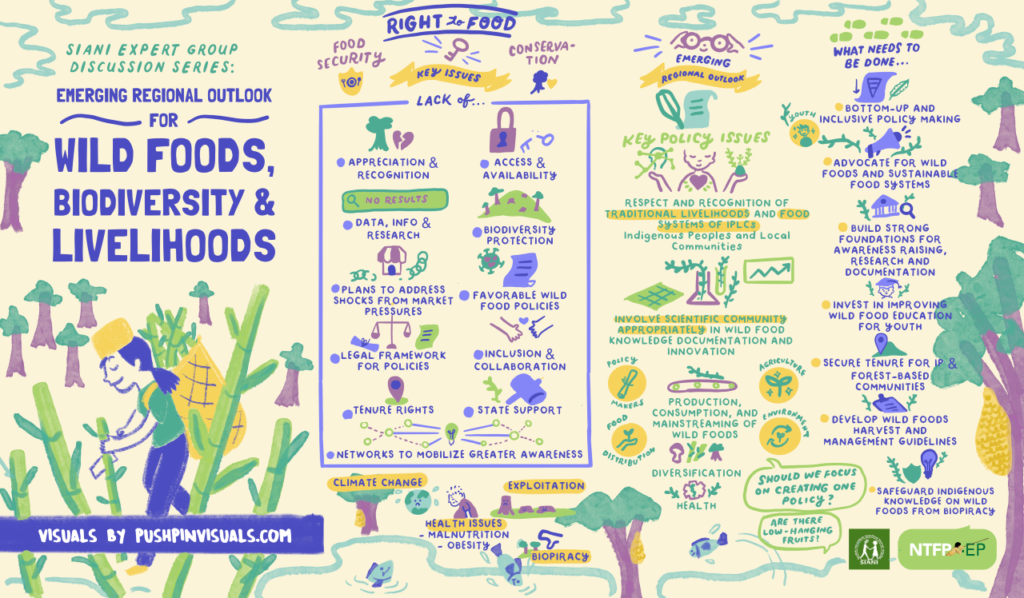Wild foods are edible non-timber forest products, usually uncultivated plants, fungi, and animals that are not consciously domesticated but collected from the forest, traditional gardens, or agricultural lands. They are customarily included in the diet of local communities in different ways or forms. Some examples of wild foods are leaves, seeds and nuts, shoots and stems, root crops, fruits, flowers, fish, meat and insects.
During the last year the SIANI Expert Group working with Wild Foods, Biodiversity and Livelihood hosted a webinar series discussing wild foods and the connection with biodiversity, livelihoods, tenure rights and indigenous people in Asia. The discussions and presentations during the webinar series reveal several common features across the region:
- Indigenous and rural peoples hold rich knowledge about wild foods. They forage and eat wild foods on a day-to-day basis. Many foods, as well as their methods of preparation, storage, or harvesting techniques, are a part of their identity and culture.
- Mainstream agriculture disconnected food from nutrition and cultural identity. Both of the latter are important components of indigenous food culture.
- Bring people who work with wild foods into conversations about climate and biodiversity. Wild food work (field observations) notice and record microclimatic changes. These are small changes observed by wild food collectors and are not fed into the larger dialogues on climate change. It is similar when it comes to data collection on biodiversity.
- It is important to embrace and promote all traditional farming methods practiced in the region, including rotational farming, gathering, fishing, trapping, food gardens, and cultivation. Even some of these traditional food systems focus on non-mainstream crops. Their strengths and vibrancy should be known better in the local contexts, as well as the threats that they face.
Read more about common threads across Asia regarding food systems and wild foods.
Read summaries and watch the recordings of the different webinar discussions, with a focus on wild foods and biodiversity, community based livelihoods, tenure rights and indigenous people.
